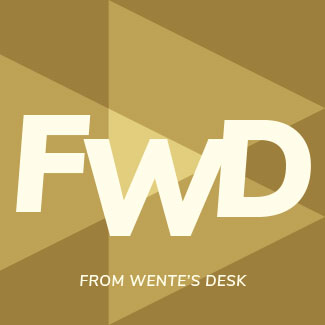An engaging process is itself a valuable product

I find the nature of life at the cellular level fascinating. Though microscopic, individual cells are incredibly complex, they retain sophisticated mechanisms for staying the course and doing the particular work they are designed to do. Even in the most difficult circumstances, cells constantly adapt to their surroundings — to the demands placed on them – through a series of feedback loops. While each cell has its own rhythm, it might also need to work in concert with the other cells around it.
Just as cellular life has its own unique rhythm, so does the work of scientists who seek to understand these organisms. As a biochemist, the rhythm that my students, colleagues and I would follow in the lab is guided by the principles of the scientific method. We consult existing literature to identify an area of inquiry, form hypotheses, run experiments multiple times, once again consult the literature to interpret findings, and then share findings with others.
I see a striking parallel between my days in the lab and our University’s strategic framework process. Strategic framing, like science, tends to have its own rhythm:
- confirm who you are and explore who you want to be;
- learn from the past, present, and emerging future of your own university and others;
- seek feedback on the proposed directions;
- revisit and revise;
- and finally, share objectives for making the goals and vision come to life.
Like science, strategic processes are by necessity iterative and build on the foundation of a community seeking consensus. As with any team-driven effort, the process by which the strategy is being determined is a product that generates meaningful outcomes of its own. In this way, once again like science, we learn much from the methods that we choose. We make mistakes and learn from them. We make discoveries. We confront our own assumptions. And we grow together while crafting the vision.
I appreciate these outcomes and more as we enter the final months of our year-long strategic framework process. While our efforts together are yielding extraordinary insights and direction for Wake Forest’s third century, this process has also been a valued product.
Through our many focused conversations, committee gatherings, forums and events, the process has brought members of our campus and broader university community together — and most often, in person. I have heard often from Wake Foresters this year that these opportunities to engage in person with one another have helped us connect and reconnect following the isolation of the pandemic. They also helped us reflect on why we are here: to deliver on our mission and to do so in collaboration with our colleagues.
When we explored what is expected of great universities today, over and over again we heard our core commitments resonate and reverberate across the community – and we distilled our overarching value proposition: that Wake Foresters will embody Pro Humanitate at home and in the world.
Most recently our working groups, led by our faculty and staff, gathered input from generative sessions on campus with colleagues, students, trustees, council members, alumni, and supporters. They then developed concept papers that outlined ideas and compelling objectives to support our draft strategic framework. The working groups are now refining their papers to further distill their ideas into high-level, strategic objectives. A next step will be to share those objectives with our campus community before commencement. Updates on how to give further input will be shared soon.
And just as in the laboratory, I am confident in the emerging results because of our process. The ideas and objectives come from broad-based, crucial conversations that invited dialogue, generated innovation through debate, welcomed diverse perspectives and experiences, and embraced respect. These are approaches — processes — that universities and campus communities must be exemplars of and committed to if we are to be catalysts for good in society.
As our strategic framework continues to evolve, I will naturally continue to lean on the many leadership lessons that have emerged from my experiences as a scientist — including my philosophy on trust, transparency, and teamwork and the importance of radical collaboration. Looking ahead, I hope we will all remain committed to the connections and reconnections we have forged along the way in this strategic framing endeavor — to Wake Forest, to our mission and values, and to one another. I know we will benefit from the products of both the process and the vision for years to come.
Categories: From Wente's Desk
